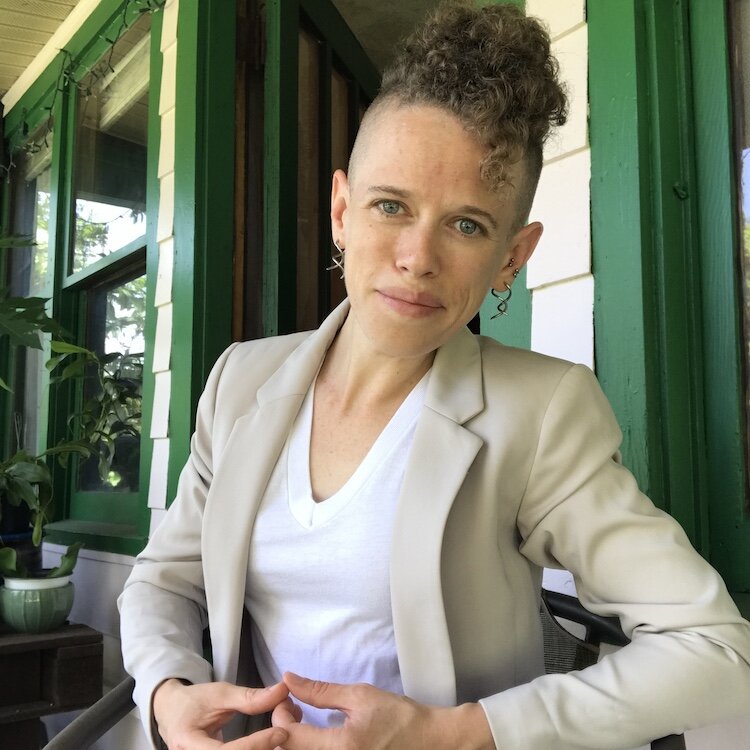Certified Nurse Anesthetist Dr. John Maye teaching students about pain management. Courtesy of USF Health
Deborah DeWaay, MD, FACP, Associate Dean of Undergraduate Medical Education and Department of Medical Education at USF Health. Courtesy of USF Health
Certified Nurse Anesthetist Dr. John Maye is a professor and Program Director for the Advanced Pain Management Fellowship at the USF College of Nursing. Courtesy of USF Health
Opioids were involved in approximately 70% of all drug overdose deaths in Florida (3,189) and in the United States (46,802) in 2018, according to the CDC, making the drug a leading cause of injury-related death.
In an effort to better prepare doctors to address the ongoing opioid crisis, the Florida Department of Children and Families recently awarded a $250,000 grant to USF's Morsani College of Medicine to assess and strengthen the pain management training its future doctors receive across four years of medical school.
"This country does not have an opioid problem. We have an addiction problem," says Deborah DeWaay, MD, FACP, Associate Dean of Undergraduate Medical Education and Department of Medical Education. "I would argue that a good portion of healthcare providers have not really come to grasp with the fact that an addict's brain has been hijacked. We want to graduate students who really understand that, and in addition, know the nuances -- treating opioids is different from an alcohol disorder, for instance -- while also appreciating commonalities [of addiction]," she says.
Dr. DeWaay was part of a task force commissioned by the Council of Florida Medical School Deans in 2018 to develop the Framework for Developing Core Competencies on Pain Management and Opioid Stewardship Education -- a document specifically addressing the pain management training med students undergo.
"The thing we were missing was not the plan itself, but the funding to execute it, so when the grant came through -- it was fantastic. Our current fourth-year med students will now do about 80 hours in the areas of pain management and addiction. This includes some very special work in opioids. We'll also be identifying the things we need to make the program more robust during the first three years [of med school]," Dr. DeWaay says.
USF College of Nursing anesthetist, Navy vet, creates a virtual curriculum
Certified Nurse Anesthetist Dr. John Maye is a professor and Program Director for the Advanced Pain Management Fellowship at the USF College of Nursing.
Prior to joining USF 2016, Maye served 27 years in the Navy, retiring in 2015 at the rank of Captain. He served as Director of Research for the Nurse Anesthesia Program at the Uniformed Services University of Health Sciences and worked from 2003-2015 in the operating room at Walter Reed National Medical Center in Washington, D.C., where he treated casualties from the Wars in Iraq and Afghanistan.
While serving as Director of Research for the National Naval Dental Center's Orofacial Pain Center, Maye saw symptoms of the brewing opioid crisis and responded by administering non-opioid agents to his patients.
"We have a tradition in the way we educate people in the U.S. about how to manage pain, but we really haven't come up with any kind of innovative techniques. Pain can be managed effectively with limited or no use of opioids," Maye says.
USF College of Nursing recruited Maye in 2016 to launch a Pain Management Fellowship for Certified Nurse Anesthetists. He created a 24-module virtual program that offers a multidisciplinary treatment approach.
Of the program, Maye says, "We do cover opioids, but we view them as fourth- or fifth-tier in terms of strategy. We look at preventative strategies. We try to encompass ideas and methods that help manage pain before it has a chance to take hold of a person's physiology."
Using the Florida Department of Children and Families grant, Dr. DeWaay says Morsani College collaborated with Maye to incorporate his program into the med school curriculum for doctors.
"All students graduate knowing what an opioid is, what receptor it binds to, and the dangers of use. But where the deficit has been is in how much do you give a patient? If you teach there are certain types of pain -- neuropathic pain, for instance -- how much do you prescribe, and which patients should get it? It's in the details, which is why the vast majority of this is going into the fourth year," Dr. DeWaay says.
"By that point, students have enough of a base for it. They've been taking care of patients for a year, and they can apply the material."
Maye notes that several modules offer scenarios that are based on his own experiences in the military hospital. He stresses the value in training medical professionals to be confident in taking approaches that might diverge from traditional opioid treatment.
"A lot of modules are built around a sense that we want to provide people with a mechanism of action," Maye explains.
"They offer evidence-based literature, and ask open-ended questions: 'What choice would you make in treating a patient, and how would you make it?' These are intentionally challenging scenarios that people could take any approach to, but they have to be able to defend that approach."
Opioids were involved in 3,189 of the 4,698 drug overdose deaths reported in Florida in 2018, underscoring the need for pain management alternatives in the medical community.
Enjoy this story?
Sign up for free solutions-based reporting in your inbox each week.

Read more articles by Jessi Smith.
Jessi Smith (she/they) is a freelance writer who is passionate about sustainability, community building, and the power of the arts and transformative storytelling. A fourth-generation Floridian, Jessi received her B.A. in Art History and English from Florida International University and began reporting for 83 Degrees in 2009. When she isn't writing, Jessi enjoys taking her deaf rescue dog on outdoors adventures, unearthing treasures in backroads antiques and thrift shops, D.I.Y. upcycling projects, and Florida-friendly gardening.